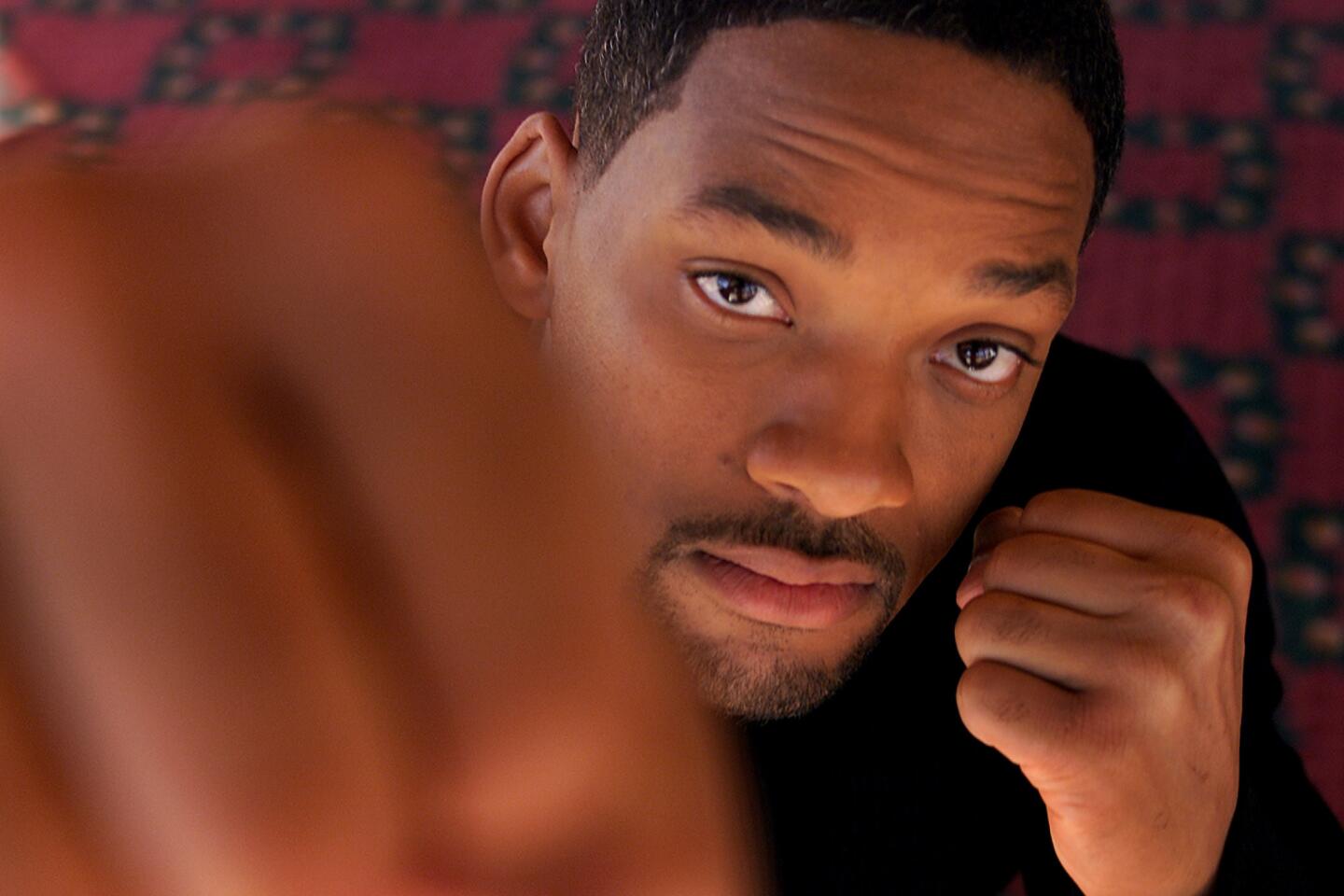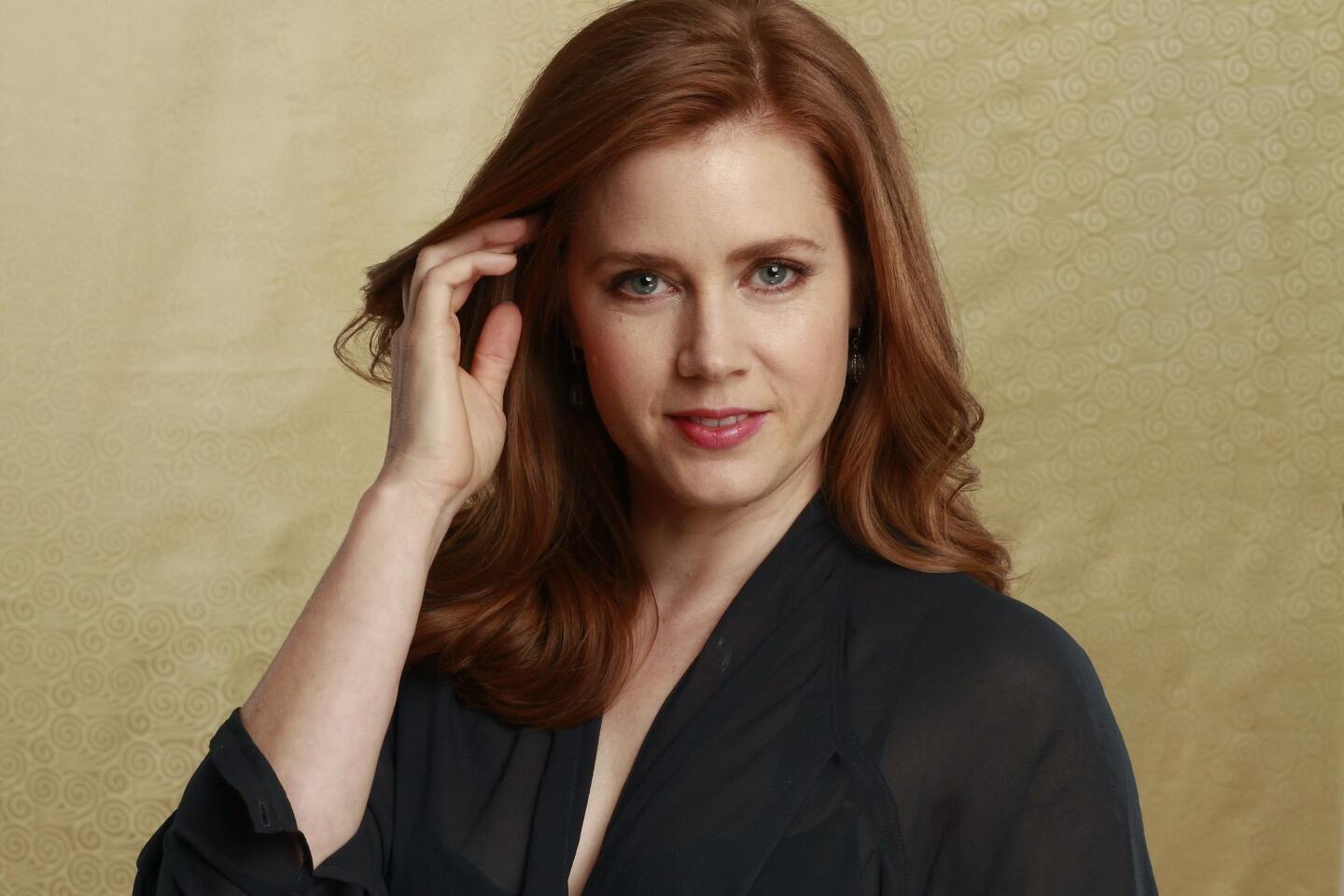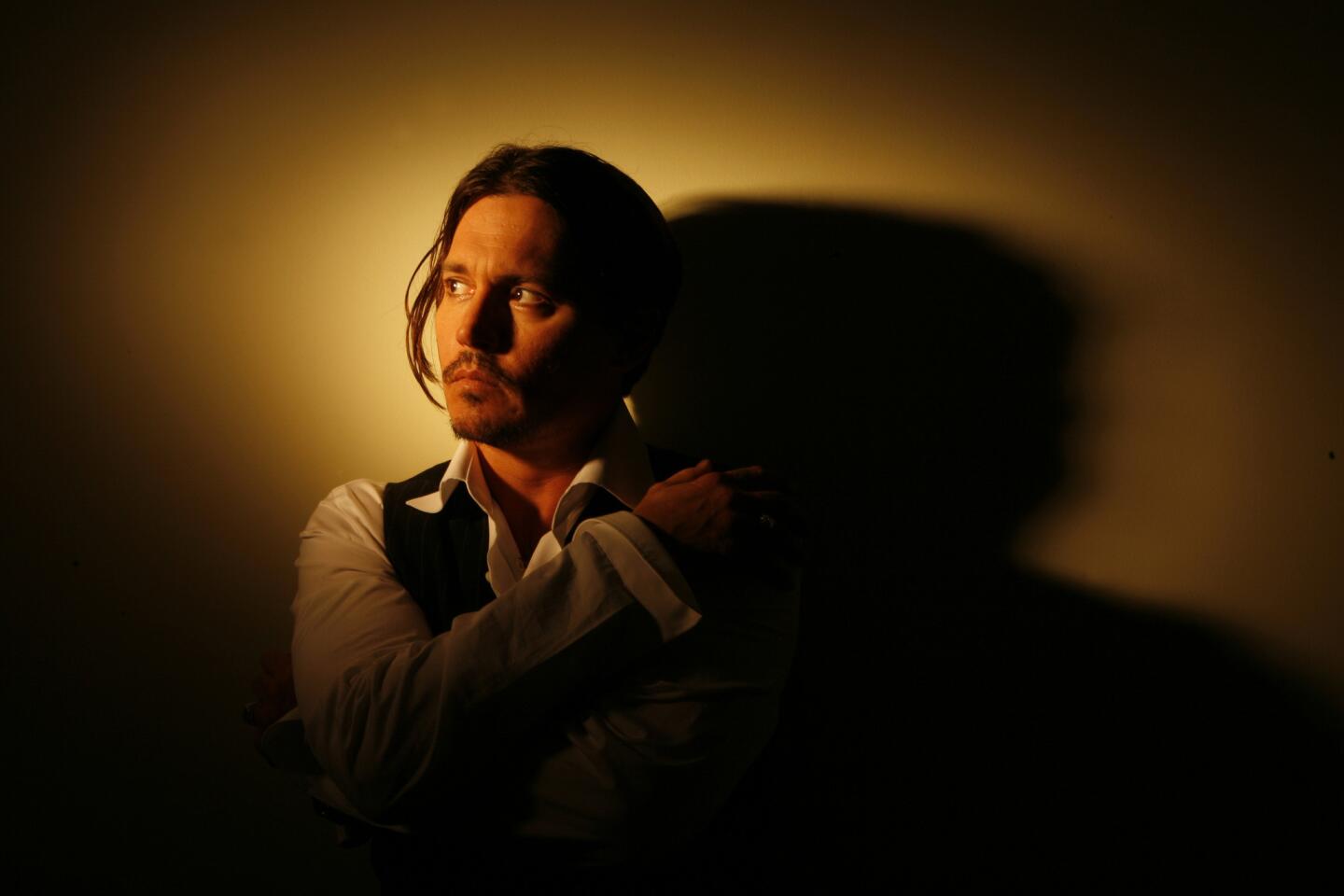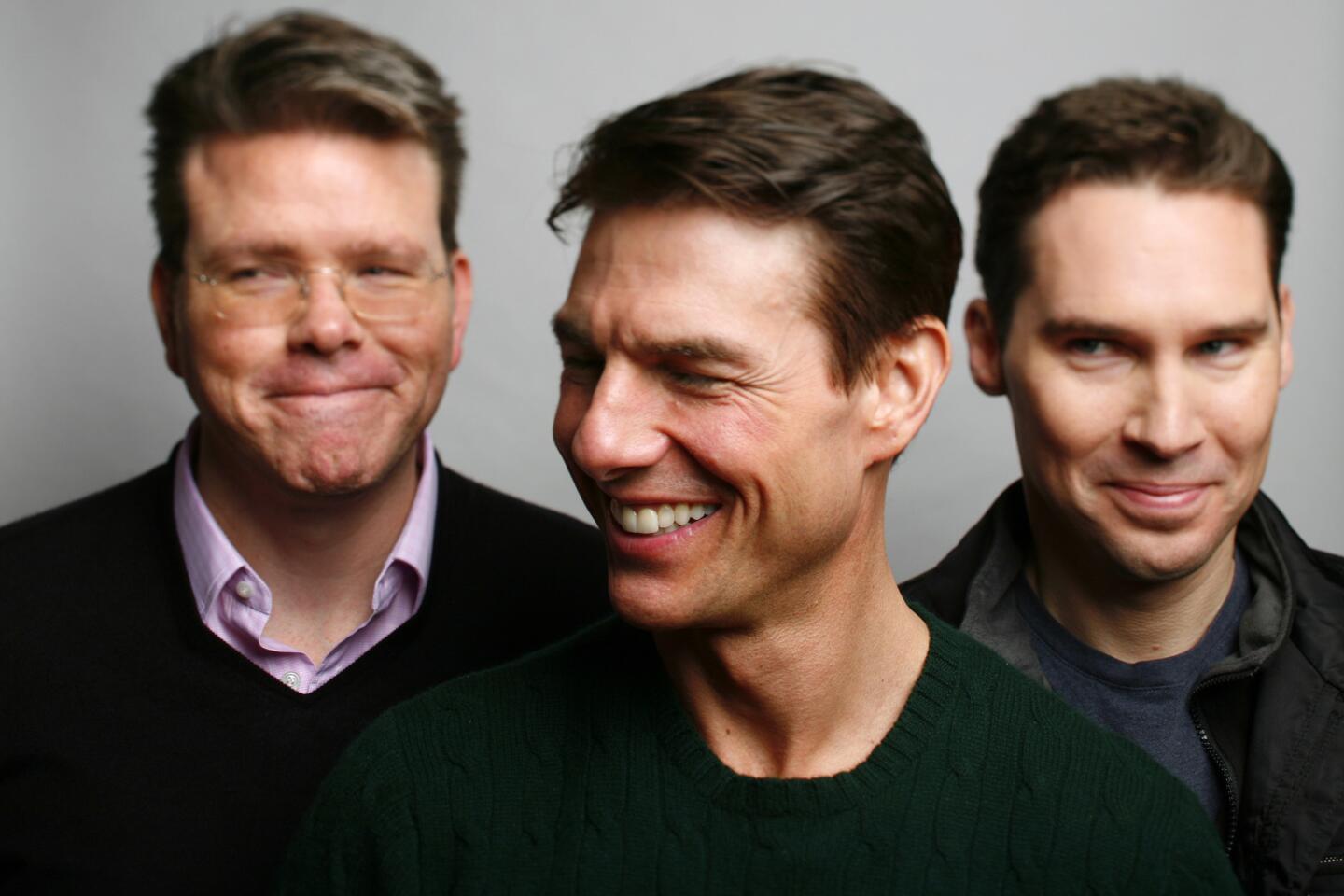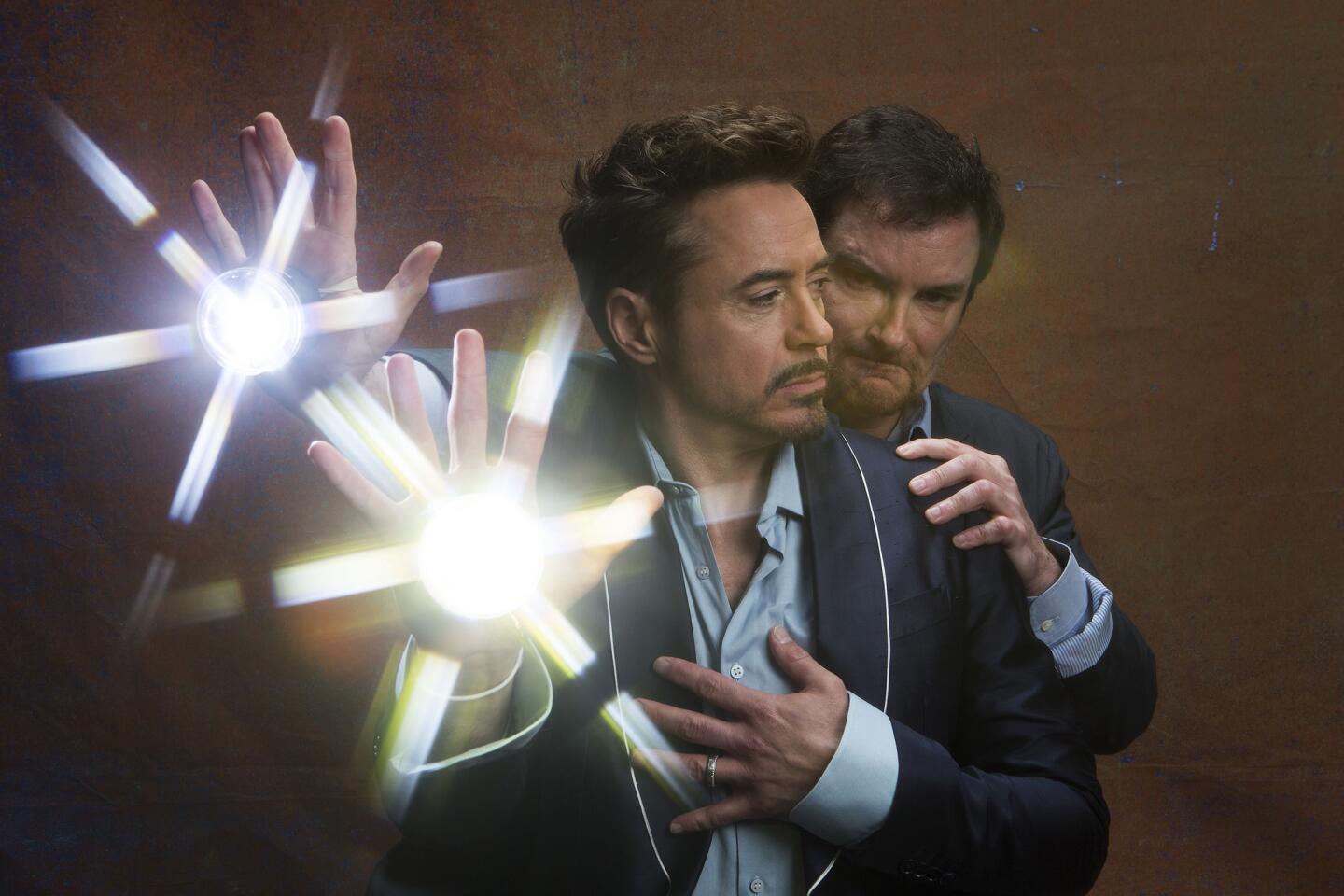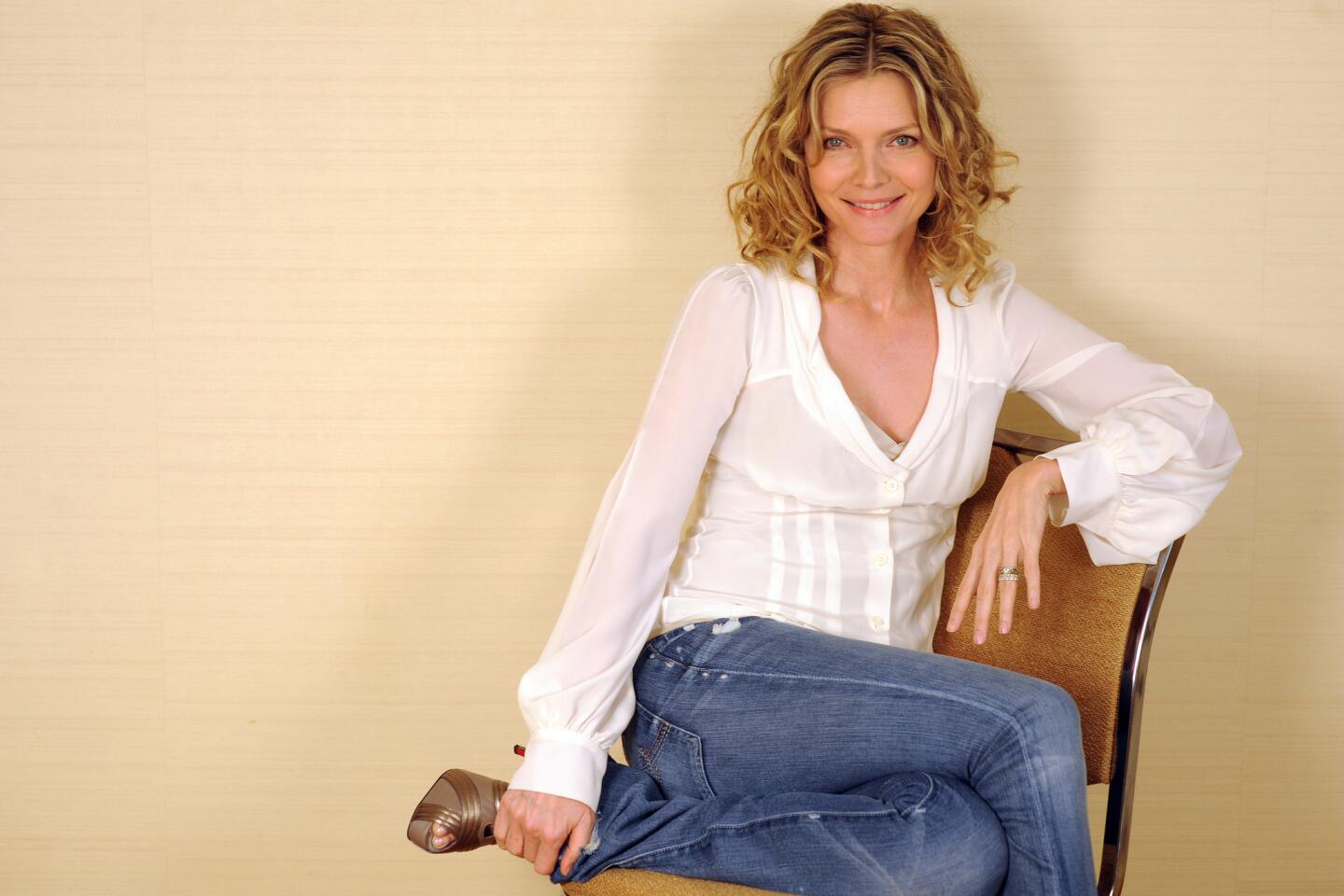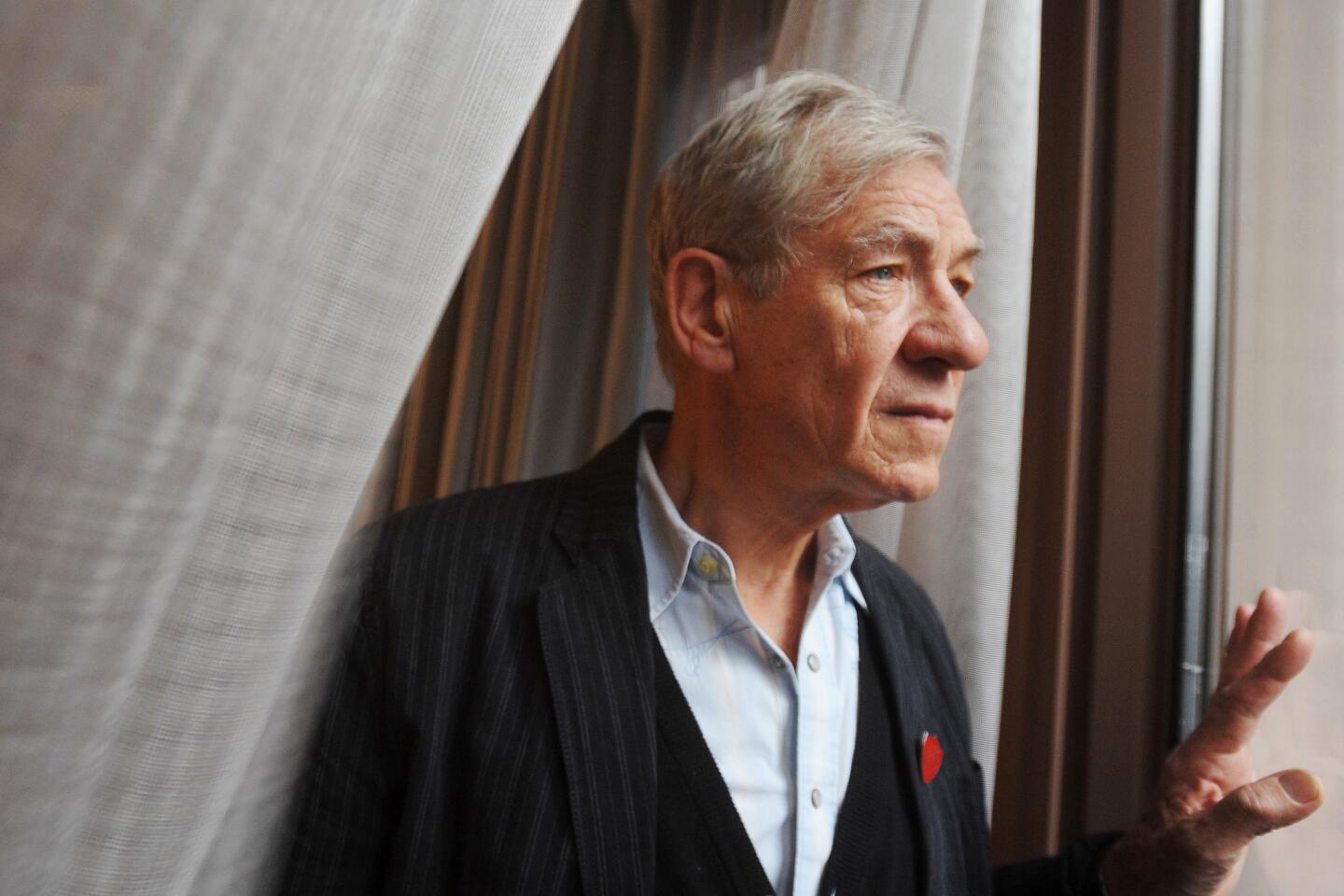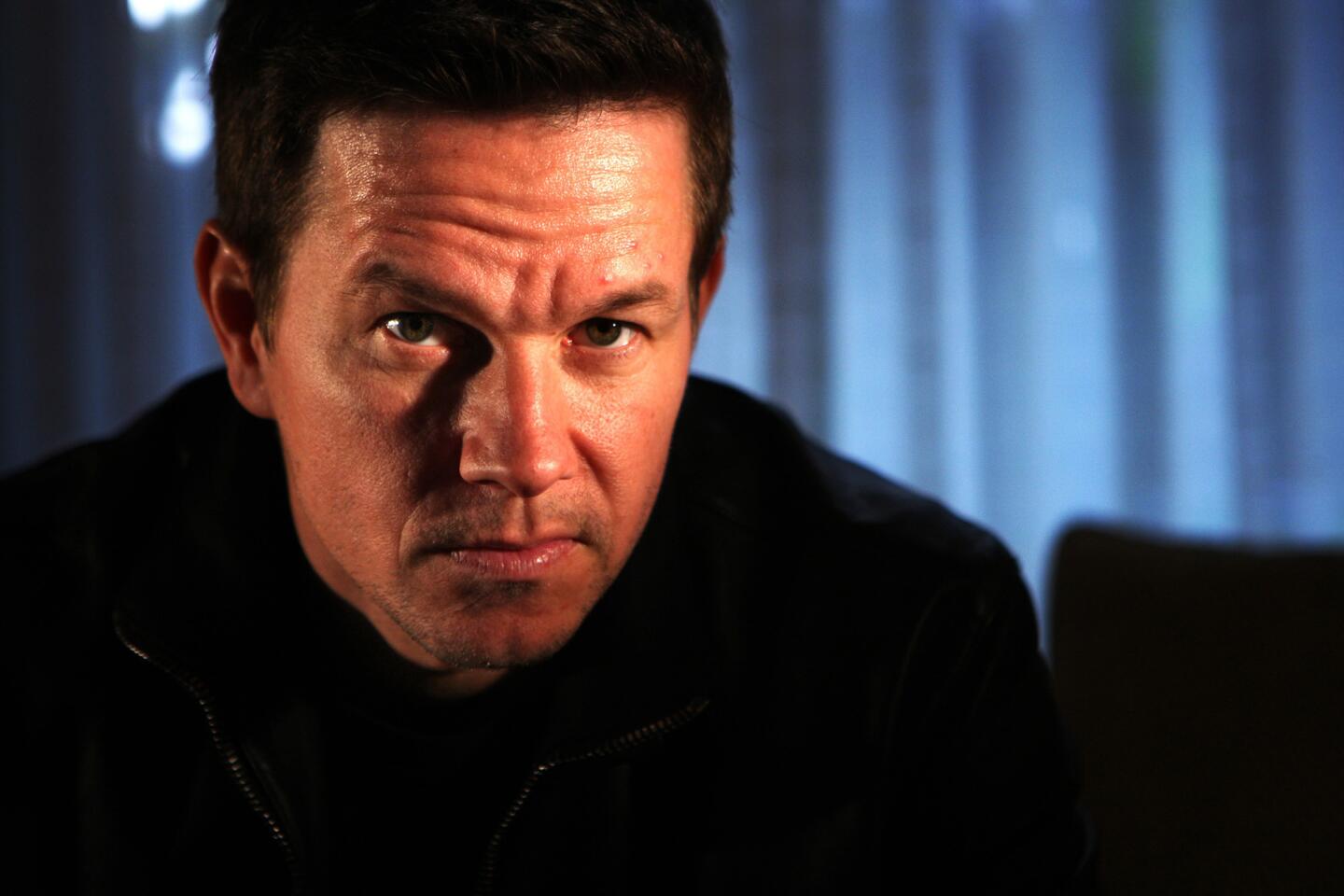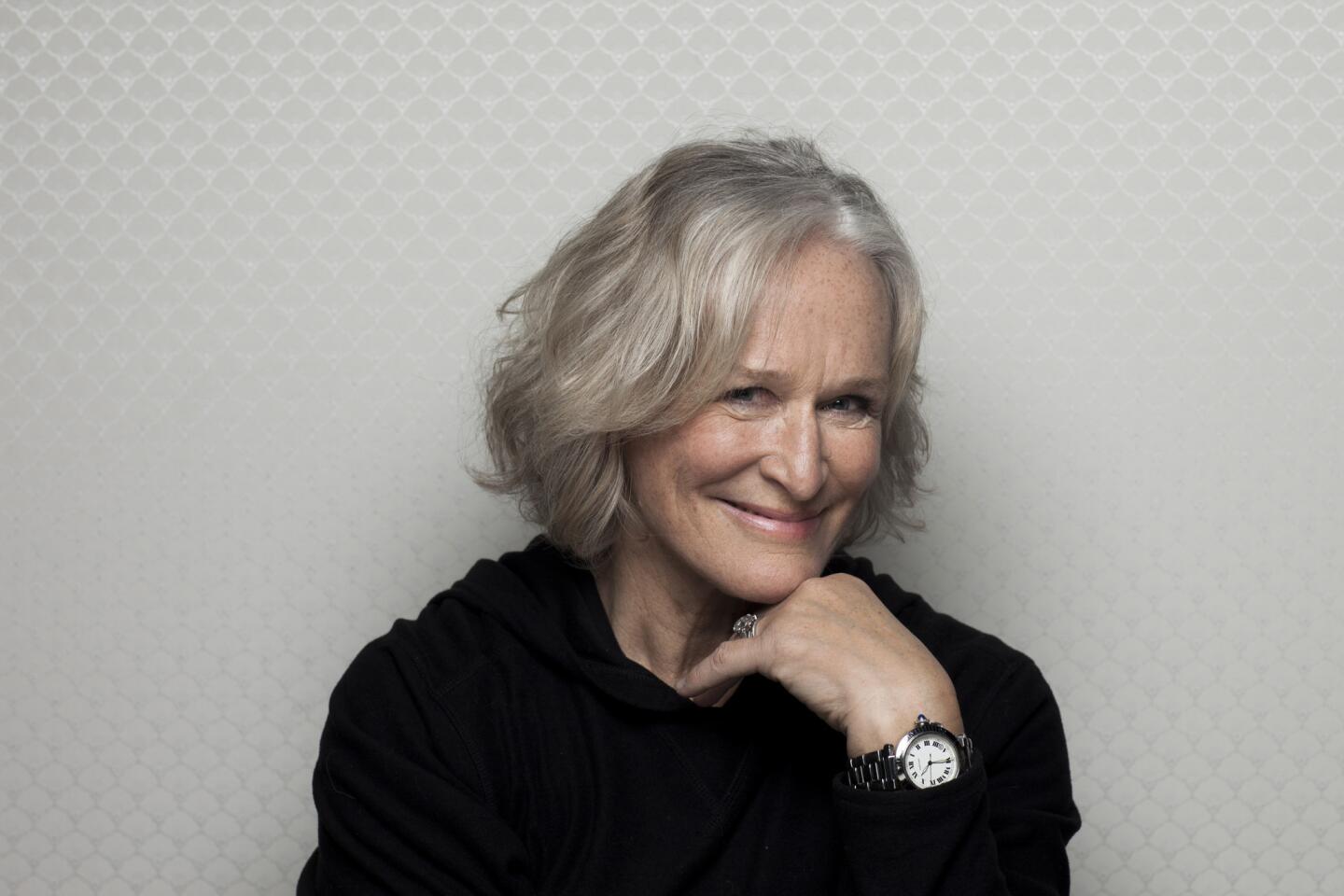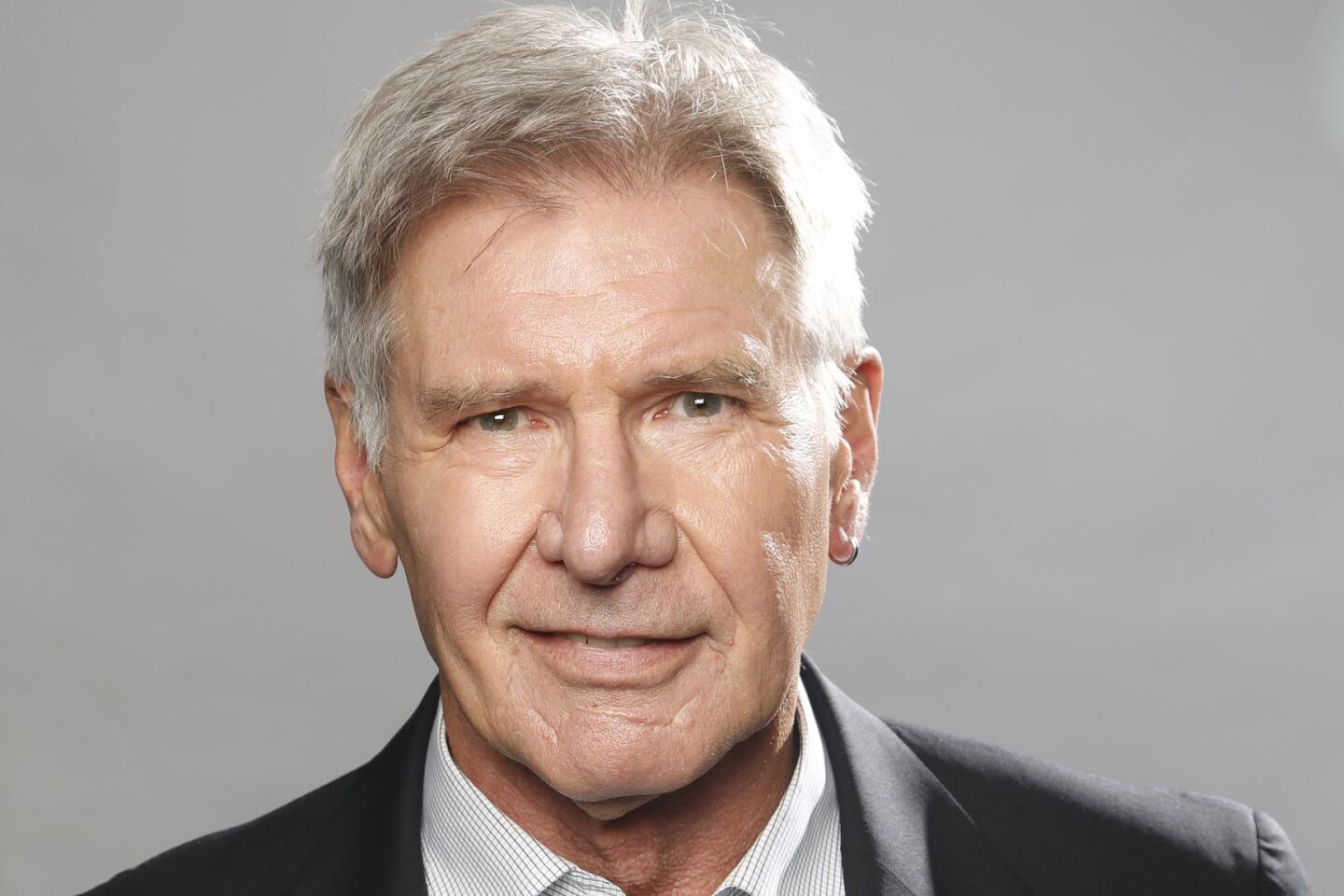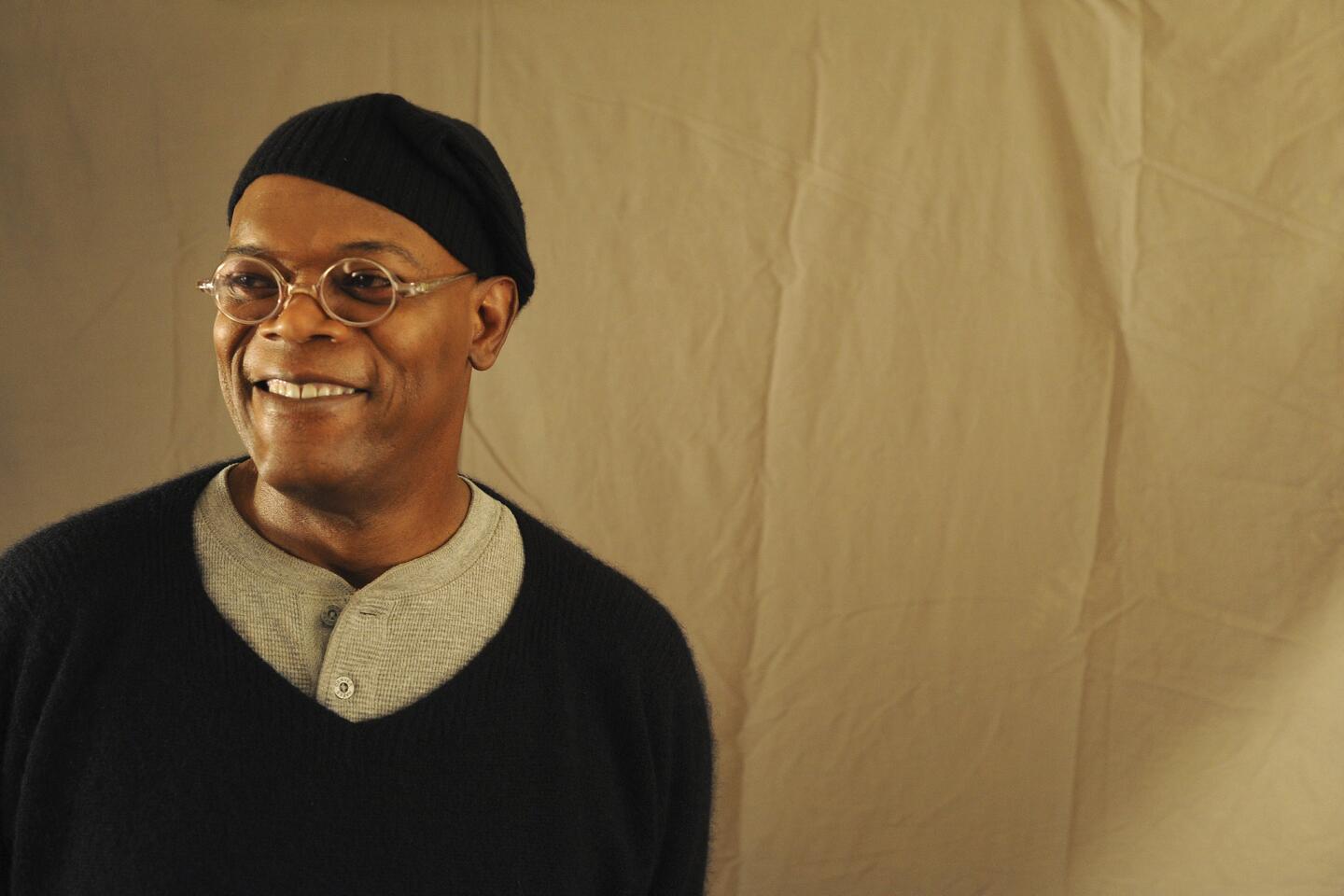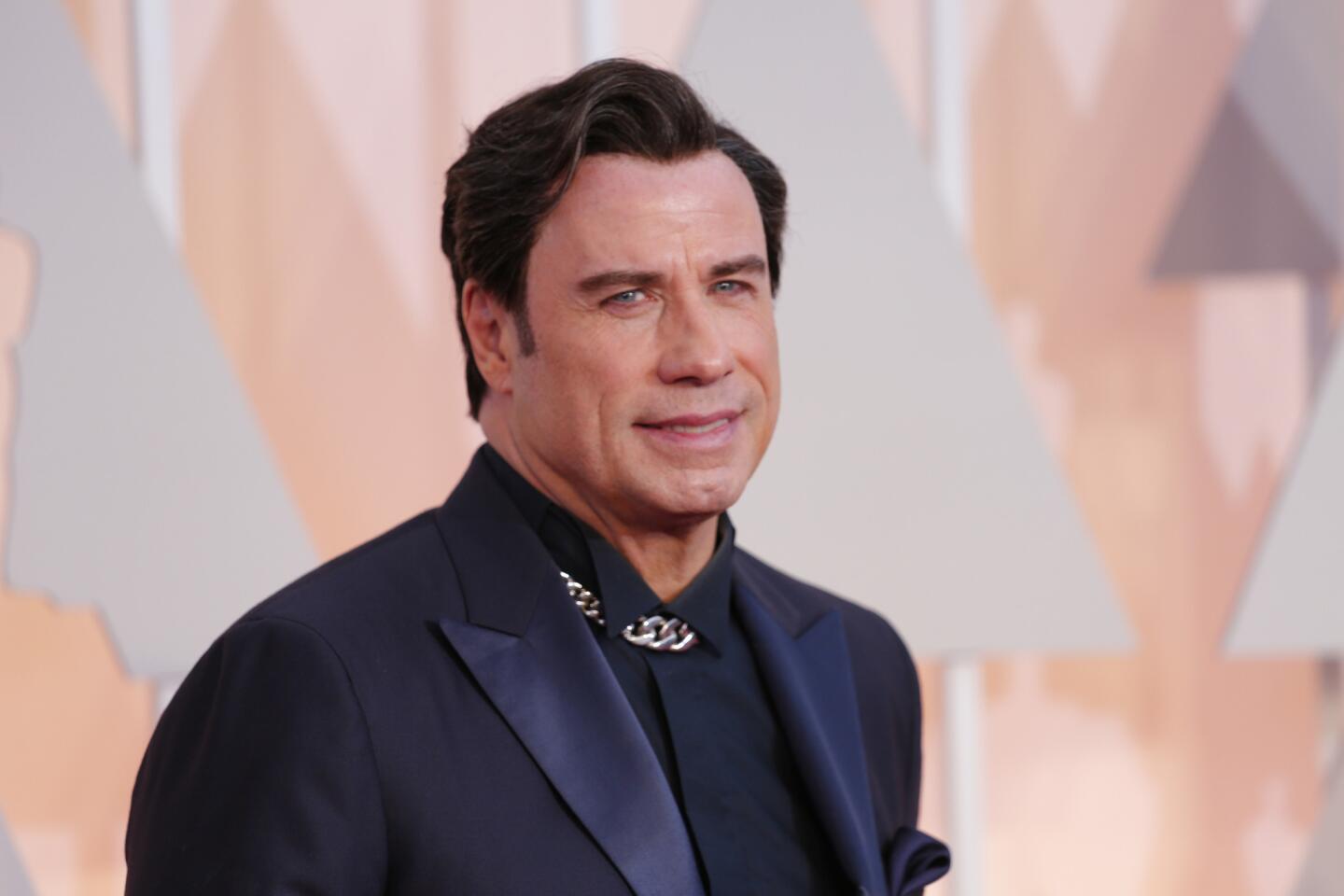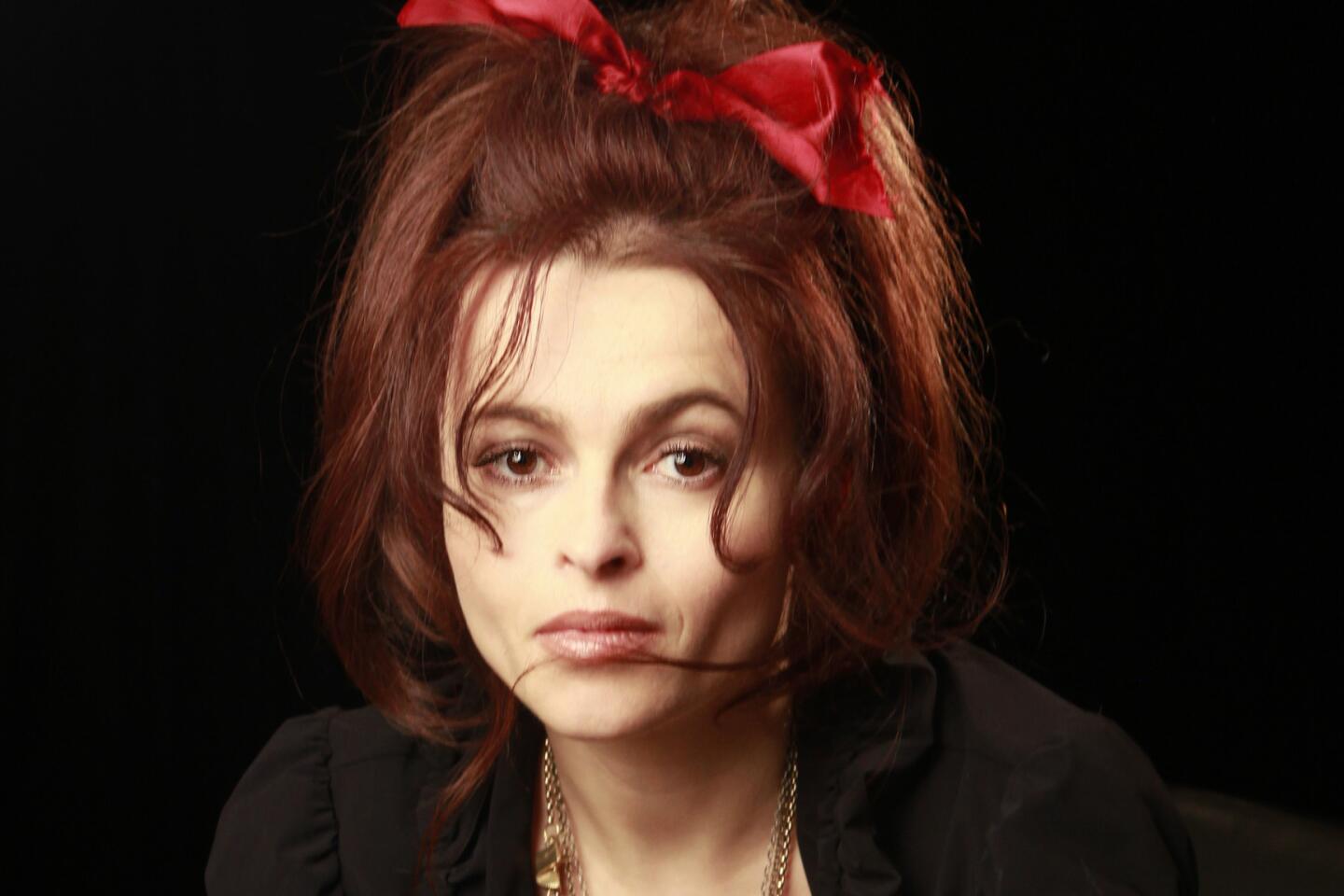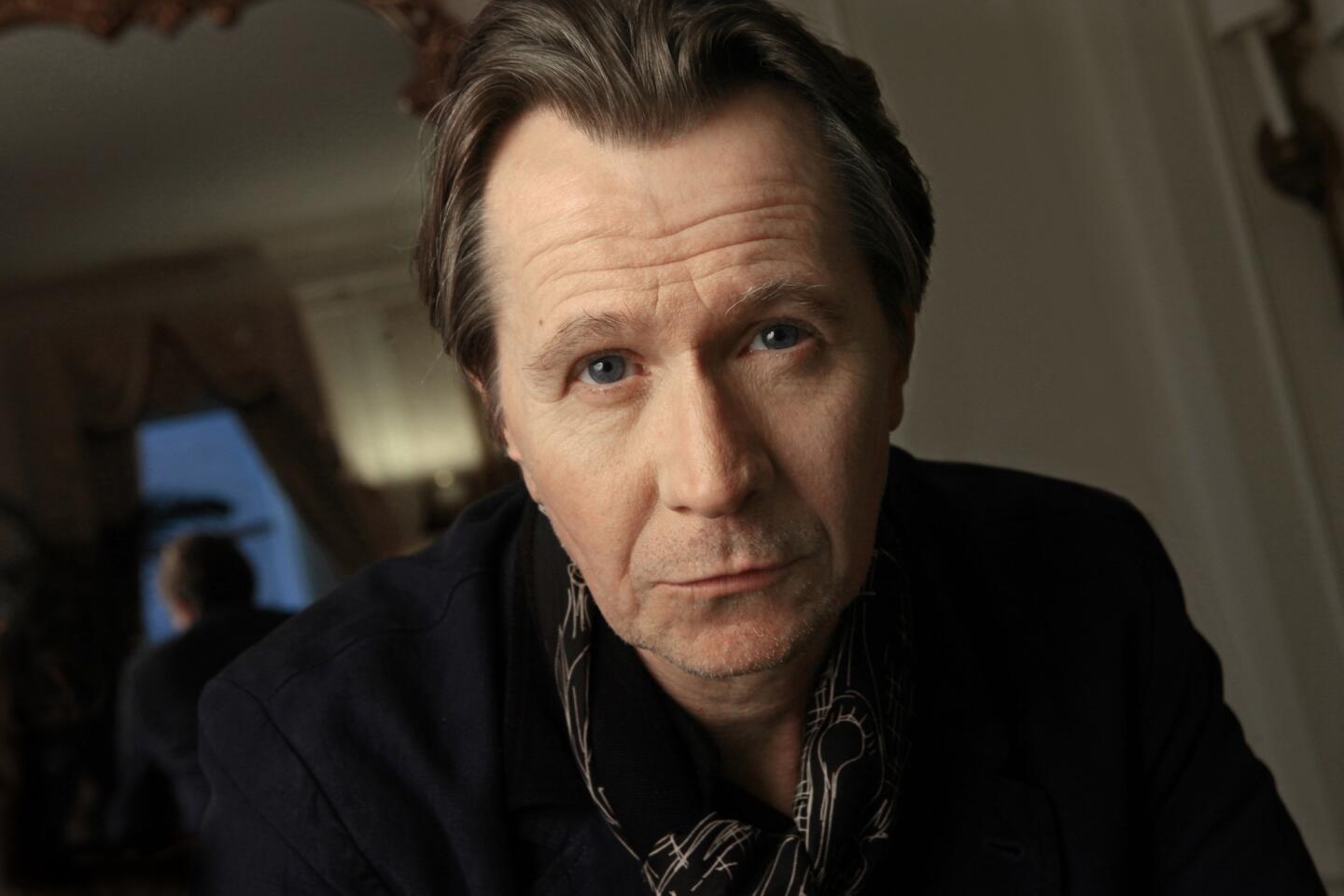Critic’s Notebook: Leonardo DiCaprio’s turn in ‘The Revenant’ proves it’s time to stop holding his popularity against him
- Share via
Success for an actor — yes, even one of the classic Hollywood mold — can be a mixed blessing.
For Leonardo DiCaprio, “Titanic” was both the greatest thing that ever happened to his career — the film that cemented his status as a box office megastar — and the movie that threatened to imprison him in a bubble of lucrative romantic kitsch.
Having grown up on screen and in the gossip-addicted media, DiCaprio has been easy to underestimate. Which supermodel is he sleeping with now? How much did his last movie kill — or tank — at the box office?
OSCARS 2016: Full coverage | Oscars quiz | Ballot
A prodigy who earned his first Oscar nomination at 19 for his performance in “What’s Eating Gilbert Grape” and an alumnus of Martin Scorsese’s on-the-set graduate school, DiCaprio has matured into an actor with a deep respect for film tradition. Instead of fattening his wallet with franchises, he has bestowed his bankable stardom on directors pursuing auteur visions.
He has also put his outsize celebrity to worthy use, bringing wider attention to urgent environmental causes. Yet Leo the playboy tabloid sensation has been difficult to shake.
In certain snarkier precincts of Twitter, the all-grown-up fair-haired boy can’t win for winning. When DiCaprio took home a Golden Globe for his performance in “The Revenant” this year, the bigger story, at least on the Web, was his reaction to getting bumped by Lady Gaga as she tried to scoot past him on her way to the podium.
The moment, captured on a Vine loop, was ubiquitous on social media for 48 hours. You can bet that DiCaprio will be extremely careful to steer clear of any famous rear ends at Sunday’s Academy Awards, where he’s the heavy favorite to take the Oscar for his tortured portrayal of the vengeful fur trapper in Alejandro G. Iñárritu’s visually entrancing (if dramatically frostbitten) film.
Before continuing this DiCaprio defense, I have a mea culpa to make. In an Oscars story I wrote some years back comparing British acting sophistication with blunt American realism, I used DiCaprio to clinch my case that thespians on the other side of the pond have a decided advantage when it comes to rhetorical panache and literary polish.
I still believe that actors weaned on Shakespeare and steeped in a tradition that encourages regular commuting between stage and screen are better equipped to handle certain dramatic challenges. But where I would differ with myself today is in the implication that this somehow translates into artistic superiority.
My biases as a drama critic were showing. The theater relishes eloquence, intellectual debate, emotion dredged up from the sea floor by language. Film, a more visual medium, has other ways of communicating meaning.
DiCaprio is a purely cinematic creature. His strengths as an actor are magnified on screen, and his weaknesses are easily concealed. The stage is not his métier. When in “The Aviator” Cate Blanchett’s Katharine Hepburn asks DiCaprio’s Howard Hughes whether he shares her passion for the theater, the answer comes back a terse “no.” It would be easy to imagine that Scorsese had surreptitiously filmed this exchange on a set break.
Not that DiCaprio has shirked his Shakespeare. Before “Titanic,” there was Baz Luhrmann’s “Romeo + Juliet,” a thoroughly Luhrmann-ized take on the play, the iambic pentameter inserted into a pop cultural pinball machine.
With his delicate features, brimming eyes and sashaying forelock, DiCaprio was born to play romantic youth of Romeo’s fetching ilk. He undeniably brought an ardent interiority to Romeo’s solitary musings, but he was even more affecting in his silences — spying Claire Danes’ Juliet through a fish tank in the banquet scene or worshiping her body in the few stolen moments fortune permits them before their tragic end.
Young DiCaprio is a different entity from today’s mature version. The transition, no surprise to anyone who has survived puberty, had its awkward patches — that phase when his adult skin was still being worn like a borrowed suit.
Scorsese used DiCaprio perhaps most effectively in this period, casting him in roles (Amsterdam Vallon in “Gangs of New York,” Billy in “The Departed”) in which he has to prove his manhood. But the boy is still visible beyond the five o’clock shadow, and there are moments when, battling more virile foes, he shrinks in stature.
Now that he’s settled into adulthood, one thing can be said with certainty: DiCaprio shines brightest when he doesn’t appear to be acting. In big dramatic moments — anything that reeks of a test — he can become self-conscious. Some actors (Meryl Streep, Daniel Day-Lewis) revel in the chance to display their technical mastery; artifice, in their hands, supports rather than undermines naturalism.
But these actors tend to come from theatrical backgrounds. DiCaprio, by contrast, excels when he behaves rather than acts, when the camera seems to catch him unawares. He has credibly handled accents when required (only a persnickety South African would object to his Commonwealth twang in “Blood Diamond”), and he always seems game for playing against the princely type of his genetic jackpot. But he’s at his best when he’s locked inside his character, when instinct has control of the wheel and craft can take a breather.
Savoring once again his work in “Gilbert Grape,” I couldn’t help being impressed by the way he neither overplays nor underplays a character with a developmental disability. Lasse Hallström’s film doesn’t turn Arnie’s condition into a symbol, and DiCaprio is content to stick to the moment-to-moment truth of Arnie’s scenes without trying to connect the emotional dots for us. He allows the movie to do that for us.
Watch Q&As with the ‘The Revenant’ cast and crew

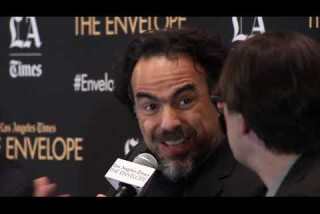
Video: 'The Revenant': Limited shooting hours
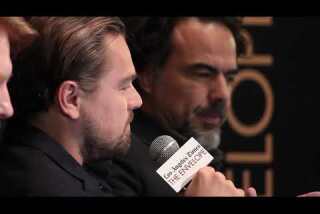
'The Revenant': Attraction of the story
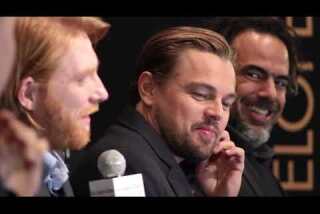
Video: 'The Revenant': Know what you're getting into

'The Revenant': Knowing a character's future
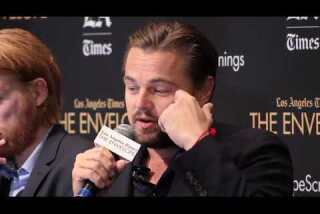
'The Revenant': Conditions affect performance
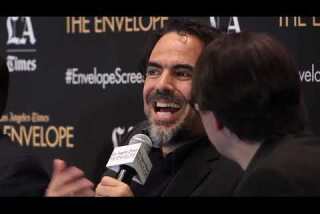
Video: 'The Revenant': The bear scene
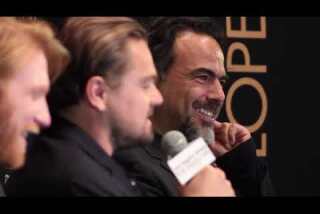
'The Revenant': Agility of the story
This naturalistic immersion, once the product of youthful high spirits, now requires more discipline to achieve. Scorsese’s camera can’t get enough of DiCaprio’s charisma in “The Aviator” — he’s seldom out of the frame, and when he is the film sinks — but the more theatrical Howard Hughes’ craziness becomes, the more strenuous DiCaprio’s performance seems.
If his breakup scene with Blanchett’s Hepburn is more moving than the long stretch when Hughes’ psychiatric symptoms have him on self-imposed lockdown, it’s because DiCaprio’s anguish is always more believable when he’s giving form to the mute pain of characters who aren’t themselves fully formed. He has a special talent for portraying men who have confused their mask for their face. Impostors, such as Jay Gatsby in Luhrmann’s “The Great Gatsby” and Jordan Belfort in Scorsese’s “The Wolf of Wall Street” (which is hands down DiCaprio’s best performance), come naturally to him.
It would be easy to hypothesize why an actor who has come of age under merciless public scrutiny would have such sympathetic insight into characters whose identities are a charade designed to impress. But DiCaprio doesn’t simply inhabit their stunted souls. He turns his unassumingly trenchant character studies over to filmmakers who can fit these figures to their age and glean the zeitgeist from a personality.
DiCaprio’s fierce commitment to serving the expansive visions of directors is one reason he will likely be hoisting an Oscar on Sunday. His grueling performance in ‘The Revenant” may not be able to compensate for the screenplay’s deficiencies. (The film’s sweeping visual majesty surpasses the middling revenge drama that never approaches anything near Shakespearean heights.) But just as he gave himself over to the eccentric violence of Quentin Tarantino’s “Django Unchained,” DiCaprio submits himself completely to the relentless endurance test of Iñárritu’s wilderness fable — a movie in which tangling with a grizzly bear is the start rather than the pinnacle of the protagonist’s agonizing marathon.
SIGN UP for the free Indie Focus movies newsletter >>
DiCaprio received some flak on Twitter for an awards campaign emphasizing the physical toll of filming “The Revenant.” The movie is a catalog of gruesome human suffering, and the film, shot in arduous outdoor conditions, looks as if it must have been a cold, soggy hell to make.
But the idea that gold trophies should be doled out to overpaid Hollywood stars based on the hardship of their working conditions didn’t sit well with scribes vaguely mindful of all those blue-collar workers wrenching their backs for a far less glamorous existence. Fair enough. But the reason this backlash didn’t bruise DiCaprio’s image is that he didn’t need to eat a real bison liver or squish around in a horrifyingly real facsimile of a dead horse to prove his conviction.
His dedication to the art of the filmmaking is transparent to anyone who has been following his adventurous career. It’s time to stop holding DiCaprio’s popularity against him. He may be in possession of one of Hollywood’s most recognizable faces, but those porcelain good looks aren’t limited to puppy-dog expressions and seductive winks. Torment might impress academy voters, but few are as good as DiCaprio at portraying numbness.
If his star radiance is an auteur’s best friend, it’s because of his willingness to offer it so freely and flexibly to the cinematic task at hand. At 41, this former teenage heartthrob has entered his artistic prime.
MORE:
In China, no ‘Revenant,’ but mad Oscar buzz for Leonardo DiCaprio
Leonardo DiCaprio’s 23-year stretch of Golden Globe nominations and wins
‘The Revenant’s’ costume designer based Leonardo DiCaprio’s look on monks
More to Read
The biggest entertainment stories
Get our big stories about Hollywood, film, television, music, arts, culture and more right in your inbox as soon as they publish.
You may occasionally receive promotional content from the Los Angeles Times.

